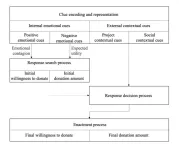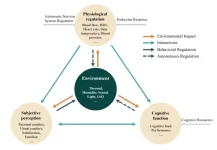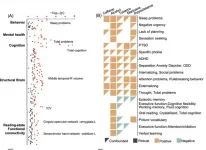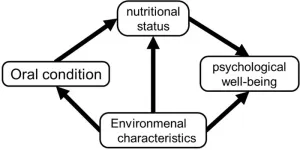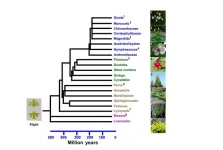To address these health disparities in rural underserved populations, researchers from Florida Atlantic University’s Christine E. Lynn College of Nursing and collaborators employed an innovative study at the Southern tip of Florida’s Lake Okeechobee. The “Glades” is comprised of four small farming cities with about 50,000 residents who are primarily African American, Hispanic and Afro-Caribbean. With more than 30 churches in the cities of Pahokee and Belle Glade alone, this region provided a good fit for testing their faith-based approach.
Researchers adapted “Faith Moves Mountains,” a protocol developed by Nancy E. Schoenberg, Ph.D., used for cancer screening and detection in rural Appalachia, for cognitive decline in rural Floridians. The objective of the study was to increase basic ADRD knowledge, early detection and intervention, and to determine if race/ethnicity, older age, female gender, lower educational levels, and more years lived rurally and alone would predict the number of referrals, new dementia diagnoses and treatment.
Results of the study, published in the journal Aging & Mental Health, showed that referrals and years lived rural were significant and positive predictors of new ADRD treatments, respectively, regardless of participant characteristics. Years living in the Glades and African American and Afro-Caribbean ethnicity were significantly related to higher referral rates following screening for cognitive decline.
For the study, local faith community members were trained as research assistants to recruit, administer surveys, conduct brief memory assessments, teach brain health strategies, and follow-up with residents. Church leaders introduced the study through the area-wide church council. A church pastoral leader initiated the 20-minute “power-teaching” group sessions with a prayer, which often was accompanied by hymns.
Outreaches were offered virtually during the pandemic, then in-person monthly at rotating church sites and repeated one year later. The brief Montreal Cognitive Assessment (Mini-MoCA) instrument was used to screen for mild cognitive dysfunction to test fluency, orientation and recall.
Findings showed that ADRD diagnoses increased from 0.9 percent pre-intervention to 24.3 percent post-intervention. Of the 235 total participants, 55.3 percent received a referral for additional cognitive testing, diagnosis and treatment as appropriate. African Americans had lower Mini-MoCA recall scores and Afro-Caribbean participants had lower Mini-MoCA fluency scores than non-Hispanic white participants. African American and Afro-Caribbean participants had higher odds of being referred to a primary care provider than white non-Hispanic participants.
In addition, there was a substantial increase from pre- to post-test basic knowledge AD, which was significantly different by ethnic group. The largest increase in basic knowledge was seen in Afro-Caribbean participants and the smallest increase was seen in African American participants.
“Rural populations are likely to be less informed about Alzheimer’s disease and related dementias due to limited access to education, public awareness campaigns and health care as well as limited digital literacy and insufficient access to the internet,” said Lisa K. Wiese, Ph.D., senior author and an associate professor, Christine E. Lynn College of Nursing.
Contrary to published evidence that racially and ethnically diverse middle age and older adults are unwilling to participate in cognitive screening, researchers found their faith-based approach was successful in engaging rural residents in learning about risk factors and risk reduction.
“There are many benefits of early screening, such as distinguishing symptoms from other potentially preventable causes, allowing for time to initiate medications to manage symptoms that are more effective when started earlier in the disease process, and providing time for long-term care planning,” said Christine L. Williams, DNSc, co-author and professor emeritus, Christine E. Lynn College of Nursing.
Importantly, this community-based effort is now being sustained independently of this research, with support by Palm Health Foundation, and a robust group continues to meet weekly to pursue the goals of increasing brain health awareness, educational interventions, chronic disease screenings and follow-up.
“An effective faith-based community approach grounded in trust between research teams and rural residents will be particularly important as the rapidly emerging science of ADRD prevention, detection and treatment is expected to produce important breakthroughs,” said Wiese. “Ultimately, we need to ‘build hope for quality of life while living with ADRD,’ particularly in often-forgotten rural settings.”
Study co-authors are Ishan C. Williams, Ph.D., associate professor of nursing, University of Virginia School of Nursing; Janet Holt, Ph.D., emeritus professor, FAU Christine E. Lynn College of Nursing; Jennifer Hagerty Linger, Ph.D., professor and vice chair for research, University of Pittsburgh School of Nursing; James E. Galvin, M.D., M.P.H., professor of neurology, chief, Division of Cognitive Neurology, and director of the Comprehensive Center for Brain Health and the Lewy Body Dementia Research Center of Excellence, University of Miami Miller School of Medicine; and Schoenberg, associate vice president for research and health disparities, and professor, behavioral science, University of Kentucky College of Medicine.
The study was supported by the National Institute of Aging, National Institutes of Health (Wiese) and the Florida Department of Health, Ed and Ethel Moore Alzheimer’s Disease Research Program (Wiese).
- FAU -
About the Christine E. Lynn College of Nursing:
FAU’s Christine E. Lynn College of Nursing is nationally and internationally known for its excellence and philosophy of caring science. The College was ranked No. 11 nationwide by US News and World Report in 2021 for “Best Online Master’s in Nursing Administration Programs” and No. 32 for the “Best Online Master’s in Nursing Programs.” In 2020, FAU graduates earned a 95.9% pass rate on the National Council Licensure Examination for Registered Nurses (NCLEX-RN®) and a 100% AGNP Certification Pass Rate. The baccalaureate, master’s and DNP programs at Florida Atlantic University’s Christine E. Lynn College of Nursing are accredited by the Commission on Collegiate Nursing Education. The College is the only one in the U.S. to have all degree programs endorsed by the American Holistic Nursing Credentialing Corporation.
About Florida Atlantic University:
Florida Atlantic University, established in 1961, officially opened its doors in 1964 as the fifth public university in Florida. Today, the University serves more than 30,000 undergraduate and graduate students across six campuses located along the southeast Florida coast. In recent years, the University has doubled its research expenditures and outpaced its peers in student achievement rates. Through the coexistence of access and excellence, FAU embodies an innovative model where traditional achievement gaps vanish. FAU is designated a Hispanic-serving institution, ranked as a top public university by U.S. News & World Report and a High Research Activity institution by the Carnegie Foundation for the Advancement of Teaching. For more information, visit www.fau.edu.
END



